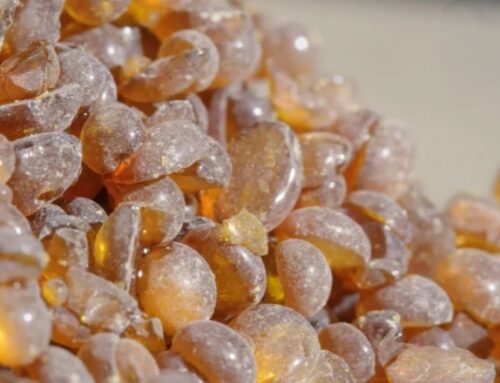Petroleum is a mixture that mainly contains various organic compounds. Based on this characteristic, people use it to refine various petrochemical products in industrial production and utilize them in various aspects of life.

1. Where does oil come from
Where does such important oil come from?
Many people believe that oil is formed by the accumulation of ancient biological relics. So, in an oil field with reserves of billions of tons, are there so many ancient organisms used as raw materials for oil?
In fact, the origin of oil remains a mystery in today’s scientific community. But scientists have summarized about three genetic theories: inorganic genetics, organic genetics, and inorganic organic binary genetics.
Inorganic genesis theory: A group of scientists, represented by scientist Mendeleev, agree with the inorganic genesis theory of oil. They believe that when the Earth first formed 4.5 billion years ago, it contained many hydrocarbon elements inside. These elements undergo chemical reactions under high temperature and pressure on Earth, forming natural gas and oil.
The theory of inorganic genesis holds that the Earth can continuously produce oil, and as long as humans improve exploration and extraction techniques, oil will never be depleted.
Organic genesis theory: With the advancement of science, scientists discovered organic substances in petroleum that can only exist in living organisms, thus forming the later theory of petroleum organic genesis.
Scientists speculate that there are abundant plankton and plants in prehistoric seas, rivers, and lakes. When life comes to an end, they will gradually die, sink to the bottom of the water, and mix with the mud at the bottom of the water. Although the individual plankton is small, they are numerous in number. After billions of years, these mixed slurries are gradually converted into natural gas and oil under the action of high temperature and pressure.
And these sludge containing plankton and plants will accumulate more and more, constantly producing new oil. As long as the carbon cycle continues, oil will not be depleted.
Inorganic organic dualism: Although scientists have indeed discovered organic compounds in oil, they have also discovered inorganic sources of oil and natural gas. Therefore, some scientists have proposed the inorganic organic dualism, which states that petroleum can be converted from both inorganic and organic substances.
For a period of time, some scientists believed that oil would run out.
In the past few years, people were skeptical about whether oil would run out, especially after 1950 when physicist Marion King Hubbert proposed a “global annual oil production table,” predicting that oil would be depleted by 2200 based on the reserves and production at that time.
Meanwhile, he also predicted that oil production would peak and then decline in the 1960s and 1970s, as he had anticipated, but in 1972, oil production began again. Increasing year by year.
In fact, Marion’s prediction at that time was not unreasonable. According to the assumed fixed oil reserves and production at that time, oil would eventually dry up. But later we learned that oil is a renewable resource. With the continuous development of human exploration and extraction technology, more and more oil fields will be discovered. Currently, the global crude oil extraction rate is only around 30%, and there are still many oil extraction technologies. There is ample room for development.
Last,although oil is important, it is not a harmless energy source. In today’s rapidly developing world, although there is a shadow of oil everywhere in our lives, as an ancient energy source, oil will definitely produce a large amount of gases such as carbon dioxide and methane, which are one of the gases that cause global warming.
Due to the uneven distribution of oil, many countries will experience conflicts over it. Scientists have been searching for ways to replace old energy with new energy sources. I believe that in the near future, cleaner and more environmentally friendly new energy will emerge.
2. Clothing, Food, Housing, and Transportation, and Petroleum
Clothing: Oil allows you to dress freely
A person needs to wear 290 kilograms of oil in their lifetime.
The clothes and shoes we wear are all synthetic fibers, such as common polyester, acrylic, nylon, etc., which are made from raw materials obtained from petroleum.

Nowadays, the proportion of chemical fibers in textiles is close to 3/4, and over 90% of chemical fiber products rely on petroleum. With the rapid progress of polyester industry technology, the performance of synthetic fibers has far exceeded that of natural fibers (such as cotton, linen, etc.), especially for certain special materials of clothing, such as bulletproof vests, firefighting suits, anti-static work clothes… All materials come from petroleum.
In addition, masks, protective clothing, gauze, syringes, and other raw materials in medical and health products are all petroleum products. Therefore, petroleum plays a crucial role in the development of human medical health.
In the era without chemical fibers, people mostly wore clothing fabrics made of cotton, linen, and silk. And silk is very expensive, which ordinary people cannot afford to wear. Cotton, as the main source of fabric, is one of the economic crops with the lowest yield per mu.
Is the land at home used for growing cotton or food? Whether to eat enough or dress warmly has become a dilemma. The application of chemical fibers not only makes people wear warm and colorful clothes, but also gives up 300 million acres of land for China, solving the major problem of land competition for grain and cotton.
Food: Oil makes your mouth full
A person can consume 551 kilograms of oil in their lifetime.
For example, chewing gum, saccharin, seasoning agents, and some raw materials in medicines are all made from petroleum. Think about yourself chewing on oil every day, it’s so delicious! In addition, the packaging materials for food mainly come from petroleum.
Moreover, in agricultural production, oil is also indispensable. The process from sowing to harvesting cannot be separated from the participation of oil and its products.
The nutrition of land comes from fertilizers, and various natural organic fertilizers in nature can no longer meet the needs of modern agricultural production. In addition to being used as fuel for agricultural machinery, petroleum can also be made into synthetic pesticides, fertilizers, soil cover agents, sprays, and growth stimulants for animals and plants, which plays an important role in promoting agricultural yield increase.
There is also our common agricultural plastic film, which is mainly composed of polyethylene and comes from petroleum. Covering farmland with agricultural plastic film can increase soil temperature, maintain soil moisture, promote seed germination and rapid growth of seedlings, and also inhibit weed growth. It is precisely because of this that we can eat various fruits and vegetables throughout the year, without seasonal restrictions.

In recent years, with the continuous promotion of fully biodegradable plastic film replacing non degradable plastic film by the government, PBAT, as a major member of the degradable family, is of great significance for the sustainable development of agriculture in China. Compared to common biodegradable plastics, biodegradable plastic films made from PBAT materials can completely degrade into water and carbon dioxide in 4-5 months.
It can be seen that without oil, the world of foodies would be overshadowed.
Shelter: Oil Gives You a Quality Life
A person’s life is about to consume 3790 kilograms of oil.
Nowadays, in home decoration, whether it is doors and windows, walls, decorative materials, household appliances, lighting fixtures, etc., synthetic resin is used as the raw material, and synthetic resin comes from petroleum. Even wooden furniture requires the use of petroleum based adhesives and coatings.

Home appliances, such as televisions, refrigerators, computers, and overall cabinets, are closely related to oil. More than 95% of the raw materials for their shells come from oil.
Moreover, cosmetics and cleaning agents in daily life are also derived from petroleum derivatives. Speaking of which, Little Stone would like to remind girls that oil is really a treasure! There is a word called “wash away lead”. Have you ever thought about what this has to do with lead? Because ancient women’s “BB cream” and “loose powder” were made of white lead! Think about the dazzling array of skincare products nowadays, and think about how ancient people used to paint lead on their faces every day. Do you think life is really beautiful now?!
Transportation: Oil allows you to flow unobstructed
A person’s life is about to lose 3838 kilograms of oil.
We need to travel by means of transportation such as cars, trains, ships, airplanes, etc. Petroleum is processed into gasoline, diesel, aviation kerosene… to provide power for them. In addition, plastic products and lubricants in transportation vehicles also come from petroleum; Most tires are made of synthetic rubber, which also comes from petroleum.
When we drive on the highway, oil is under our wheels: petroleum asphalt comes from the residue of crude oil distillation.
Oil is closely related to our daily lives and is also crucial for national development. In the military, oil is one of the important strategic materials. Many high-end “black technology” new materials are also products of petroleum.
Carbon fiber composite material “coat” for flying torches
For example, there is a mysterious material called “golden thread”. It is named after its golden color and expensive price. This material has ultra-high strength, as well as high temperature resistance, acid and alkali resistance, light weight, and excellent performance, so people vividly compare it to “bullets cannot penetrate, and flames cannot burn”. What is the effect of using such materials to make bulletproof vests, do you think about it?
This “black technology” material is a type of fiber, called para aramid fiber, which comes from petroleum and is widely used in national defense, military industry, and civil industry. It is a strategic material for building a strong country and military.
Oil has been widely used by humans for less than 200 years, but it has deeply influenced human history, and its tentacles have penetrated into every aspect of human life.
Even if new energy has been widely developed, it can only partially replace the role of oil in the transportation sector. Currently, there is no substance that can replace the role of oil in human beings!
Although oil is a non renewable resource, we don’t need to worry about running out of oil resources for now. With the continuous development of exploration and extraction technology, abandoned oil wells in the past can now be re extracted.
Previously, people believed that only land had oil, but now it has been discovered that the oil reserves in the ocean are even more abundant! If humanity does not make substantial breakthroughs in the field of new energy, we will continue to use oil for a long time!
Article source: www.xianjichina.com
M&J International Trading Co., Ltd





